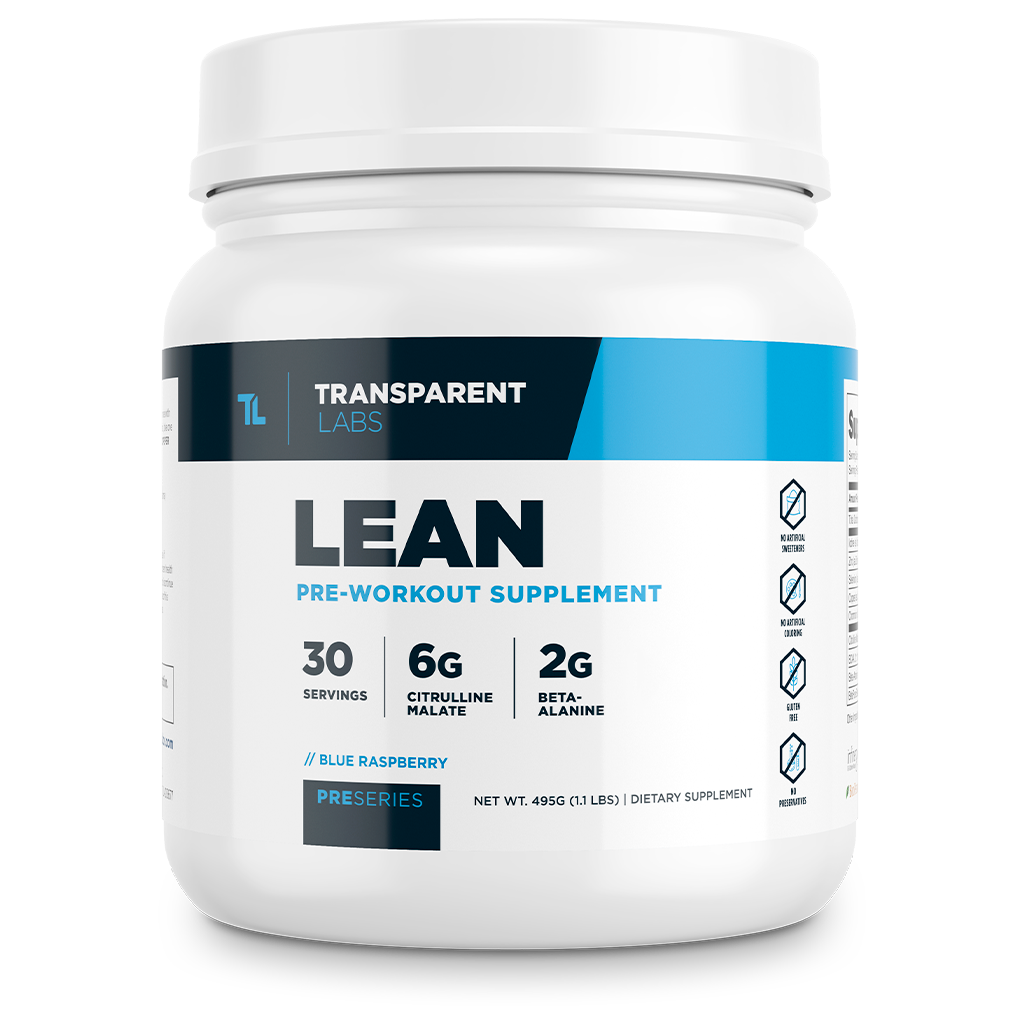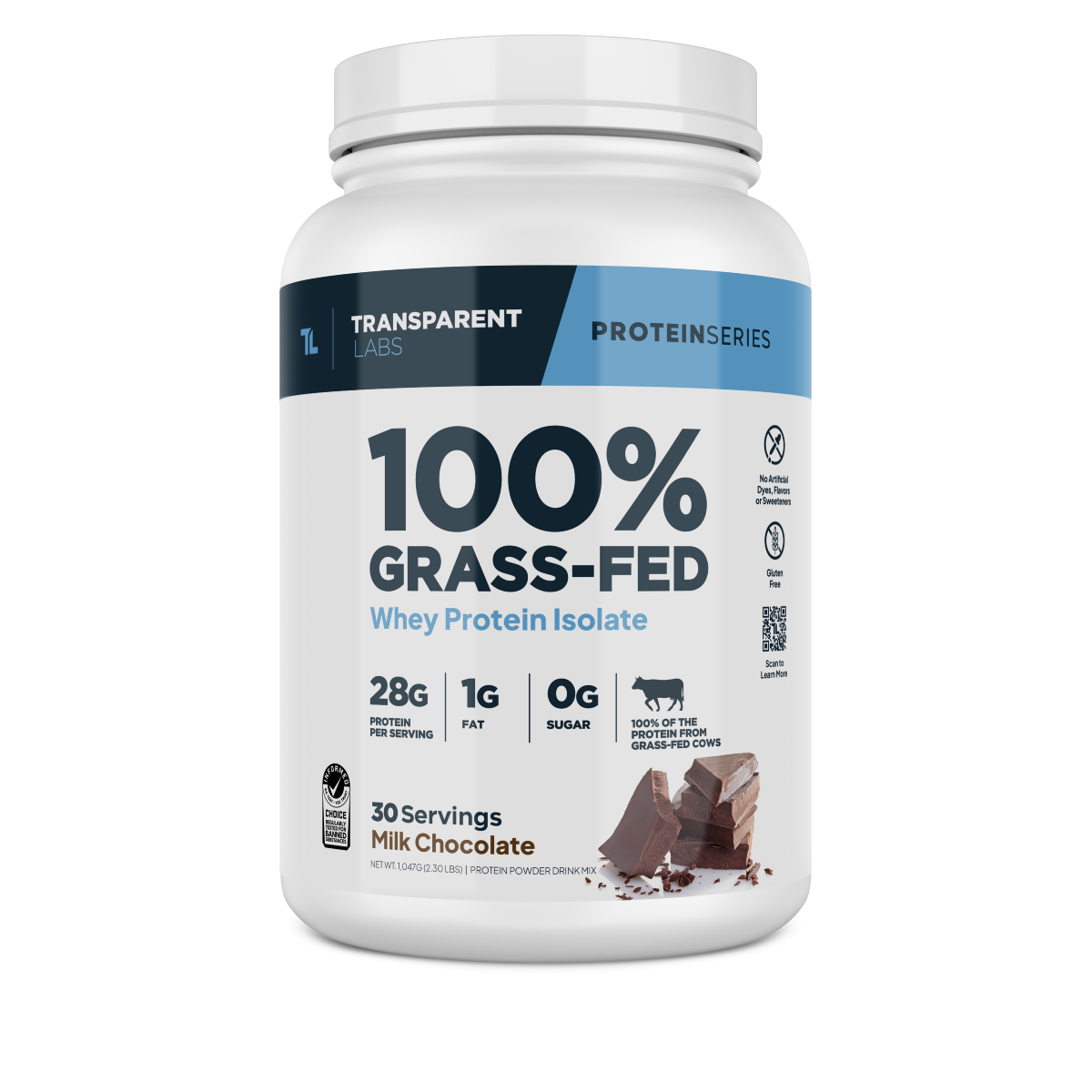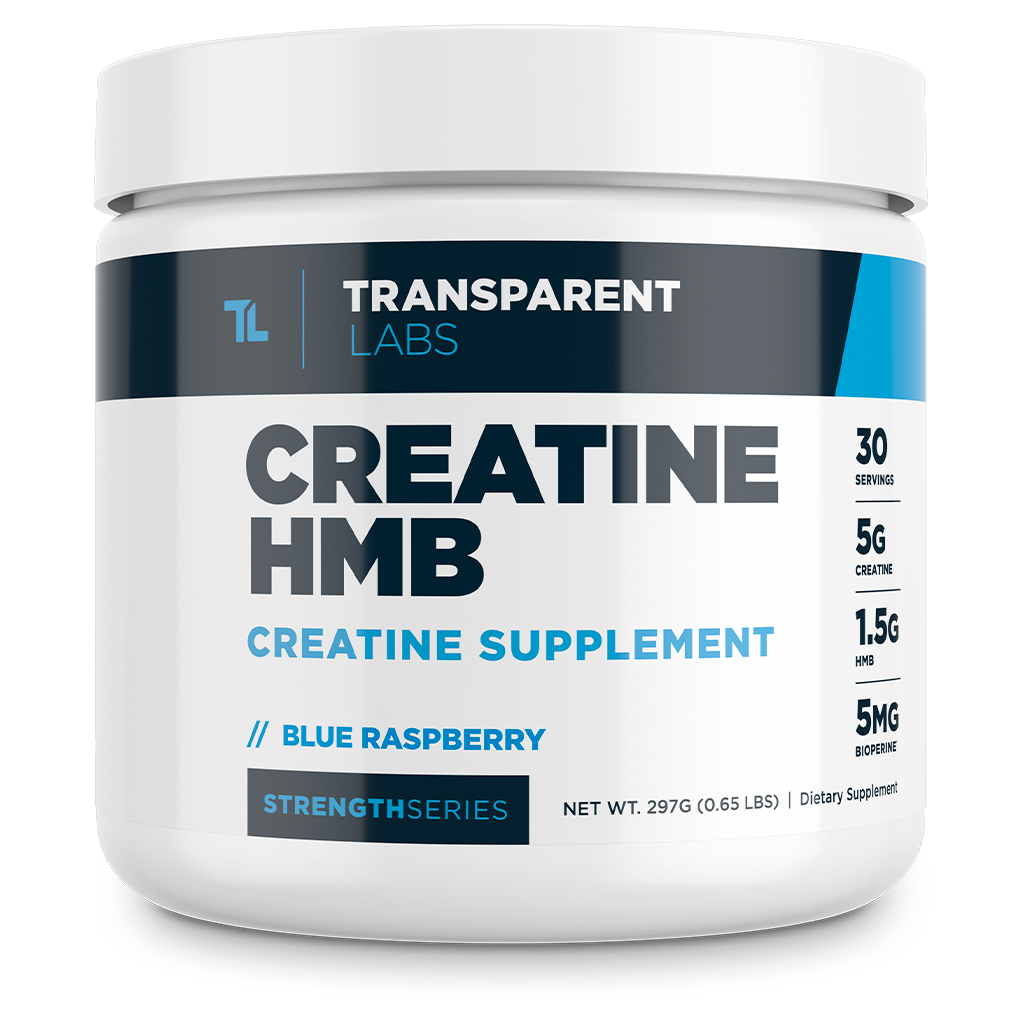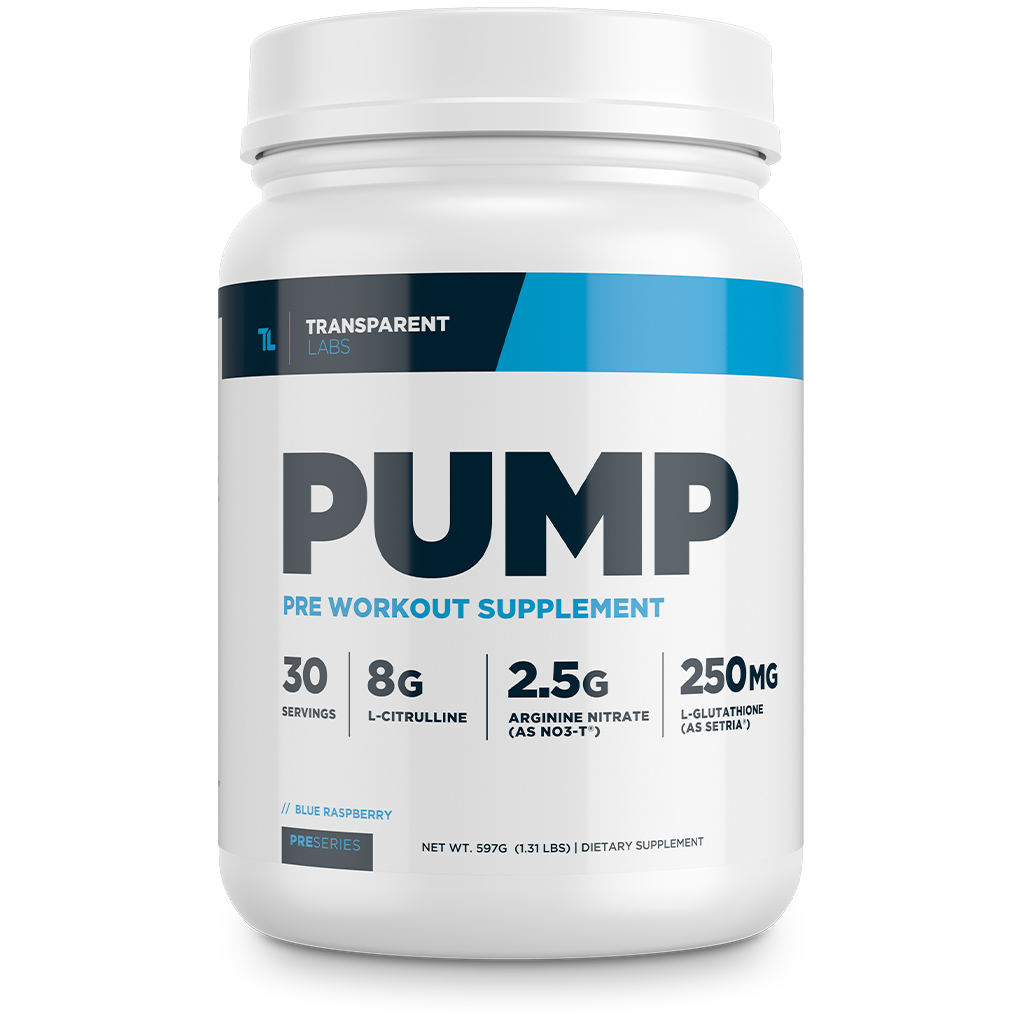When to Take Creatine Supplements, According to Science
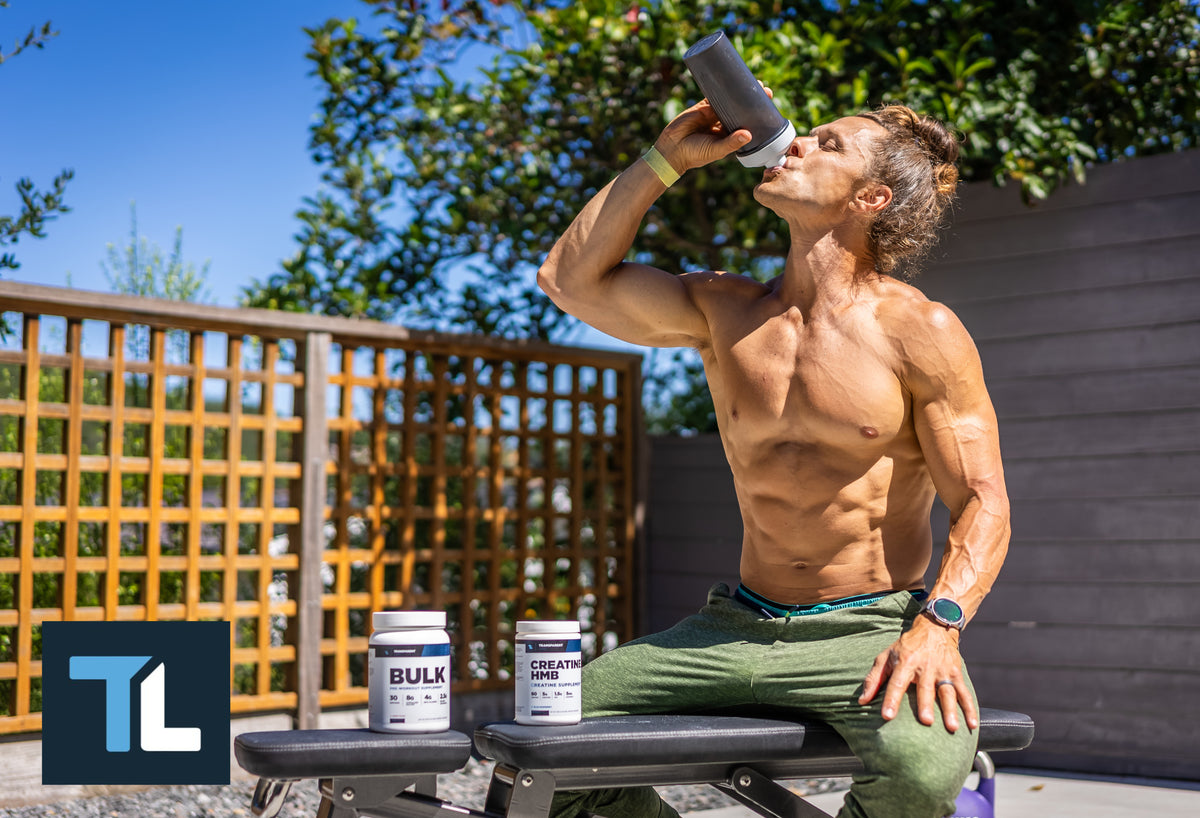
If you recently picked up a tub of Transparent Labs Creatine HMB, you might be wondering when the best time is to take creatine. Well, there's good news: The timing of creatine supplementation is much less important than gym-goers presume. Consistency, form, and dosing are the most important factors for reaping the benefits of creatine supplements.
But are there any advantages to taking creatine pre-workout, post-workout, or other times of the day? Read on as we provide an overview of how creatine supplementation works and when to take creatine (monohydrate) for optimal results.
What is Creatine Monohydrate?
Creatine monohydrate is the most common and studied form of creatine supplement. Creatine is a naturally occurring amino-acid-like molecule integral to cellular energy production (particularly during high-intensity exercise). With 100s of human studies backing the benefits of creatine monohydrate, it's arguably the best ergogenic aid for athletes, bodybuilders, and gym-goers looking to improve their performance and increase/preserve muscle mass [1].
The average 180-lb adult contains about 135 g of creatine as free creatine and phosphocreatine, over 95% of which resides in skeletal muscle tissue [2]. However, even your heart and brain use creatine to generate energy in the form of adenosine triphosphate (ATP). Sedentary adults break down roughly 1% of their creatine stores daily; active individuals, on the other hand, may exhaust significantly more creatine due to intense anaerobic training.
The body continually synthesizes creatine from the amino acids L-methionine, L-arginine, and L-glycine. Certain foods in the diet also contain modest amounts of creatine, notably red meat, fish, and eggs. (Plant-based foods generally lack creatine, so supplementation may be especially prudent for vegans and vegetarians.)
However, the dose of creatine necessary for performance enhancement is well above the amount produced endogenously and consumed from food. Hence, the most practical option is supplementing with creatine monohydrate.
What Does Creatine Do?
ATP is the veritable "energetic currency" of cells. During exercise, muscle cells use ATP to carry out contraction, allowing you to move forcefully. As ATP is used for energy, it loses a phosphate group and transforms into a low-energy molecule called adenosine diphosphate (ADP).
Your cells rely on creatine — specifically phosphocreatine — to regenerate ATP by attaching a new phosphate molecule to ADP, thereby providing energy for continuous muscle contraction.
Thus, the more creatine your muscle cells have available, the better they become at recharging ATP during exercise [3]; the more energy your muscle cells have to work with, the greater their capacity to contract and perform work.
Benefits of Creatine Supplementation for Athletic Performance
Taking creatine supplements is well-known to bolster aerobic and anaerobic performance by increasing muscular strength and endurance [4, 5]. As such, just about any athlete or active individual stands to benefit from creatine supplementation. Creatine benefits these individuals by improving max strength, volumizing muscle cells, encouraging muscle growth, reducing inflammatory markers, and facilitating recovery between workouts [6, 7].

Moreover, creatine helps mitigate muscle tissue breakdown during long bouts of aerobic exercise [8]. These effects are especially pertinent for bodybuilders and physique competitors trying to get shredded while retaining as much lean body mass as possible.
Despite the misconception that taking creatine is a bad idea for endurance athletes and those who engage in aerobic exercise, research suggests that creatine monohydrate enhances aerobic training by preserving muscle glycogen and increasing intracellular creatine content [9]. Essentially, taking a creatine supplement expands the energy reservoirs in muscle tissue so you can push yourself further during a long run, bike ride, etc.
So, is there a best time to take creatine for improving exercise performance?
When Should You Take Creatine: FAQs
Q: When is the best time to take creatine on training and rest days?
A: Research shows that post-workout creatine supplementation might confer a slight advantage over other times, but the effects of timing creatine intake are likely trivial compared to overall dosing and consistency [10, 11]. There is some evidence that co-ingesting carbohydrates and protein increases creatine absorption via insulin-mediated mechanisms, so it's sensible to add creatine to your post-workout meal or shake.
Regardless, we recommend taking Transparent Labs Creatine HMB daily, even on rest days, at a time that's most convenient for you. For some people, that may be post-workout, for others it could be before breakfast or bed. The main thing is you take creatine consistently to maintain saturated muscle creatine stores.
Q: Is a loading phase necessary during the first few weeks of taking creatine?
A: Creatine loading is a megadosing protocol that helps saturate muscle creatine stores quickly during the initial few weeks of taking a creatine supplement. However, creatine loading is not an absolute "must" for saturating muscle creatine; muscle creatine stores will reach saturation in roughly one month if you take an evidence-based dose of creatine monohydrate daily (i.e. 3 to 5 grams per day).
Q: Should I take creatine monohydrate with fast-acting carbs for proper absorption?
A: Insulin can enhance creatine uptake into skeletal muscle. However, the stimulatory effect of insulin on creatine transport into muscle tissue requires exceedingly high plasma insulin levels and only leads to marginal improvements in muscle creatine uptake [12].
Drinking 100 grams of sugar to increase creatine uptake by 10-20% simply isn't worth it for most people. Don't worry — your body will absorb plenty of creatine monohydrate without consuming exorbitant amounts of sugar.
Q: Should I cycle creatine to maximize the benefits?
A: No. Contrary to popular belief, cycling creatine use is neither necessary nor prudent. Creatine supplements are most effective when used daily over extended periods of time, as this keeps your muscle creatine stores saturated.
It's Creatine O'Clock!
There are a multitude of ways creatine supplementation can benefit active individuals, especially those who regularly engage in high-intensity exercise like resistance training and sprinting. Based on the current evidence, there is no best time to take creatine.

However, it might be easiest/most practical to take creatine immediately before and/or after training for consistency. And remember, you should take creatine on rest days, too.
As it stands, creatine monohydrate is the undisputed champion of the sports nutrition realm, and it's unlikely this will change anytime soon. This is why Transparent Labs Creatine HMB features lab-tested powdered creatine monohydrate with Bioperine® and hydroxymethyl butyrate (HMB) for greater absorption and synergistic ergogenic benefits vis-à-vis muscle mass and athletic performance.

